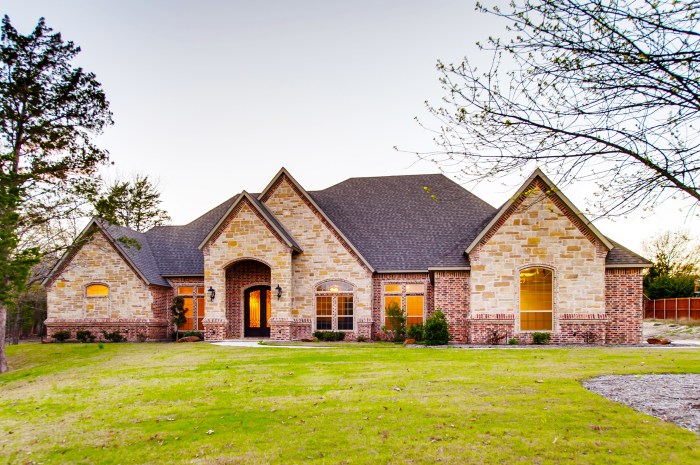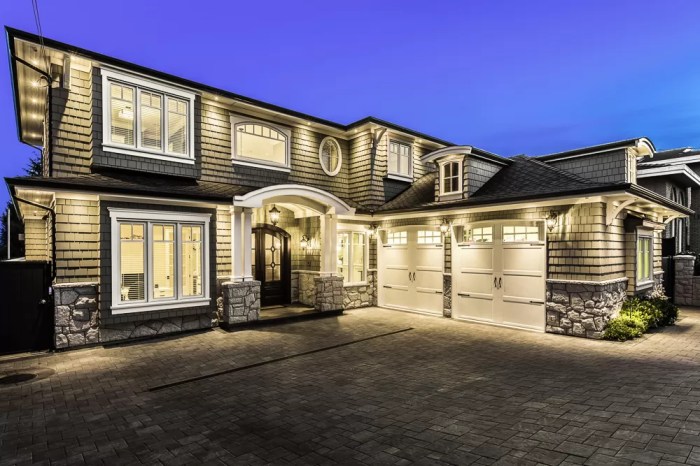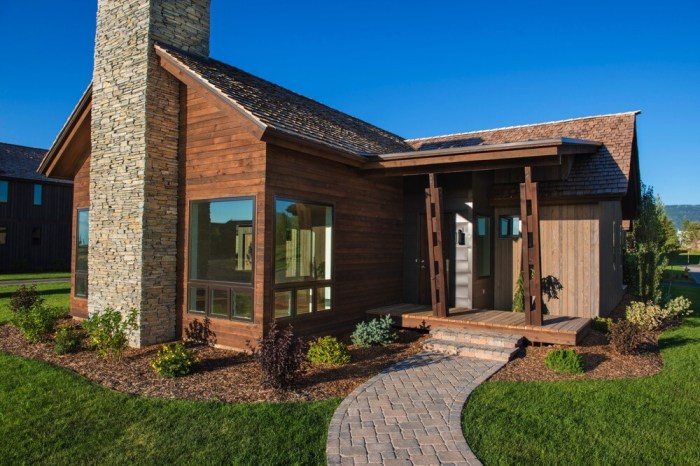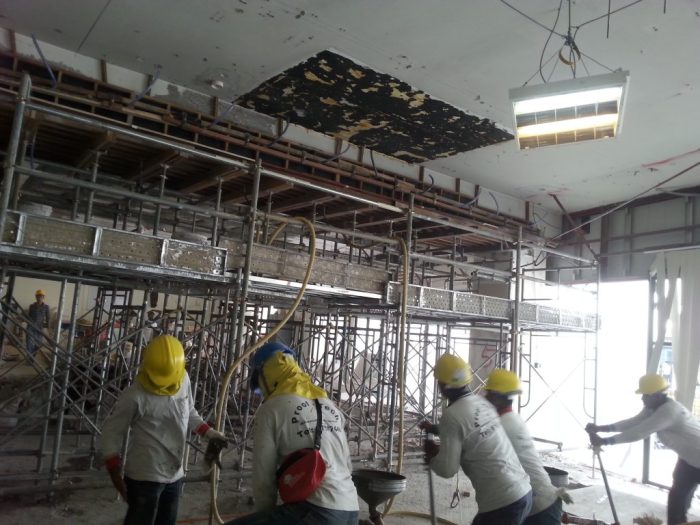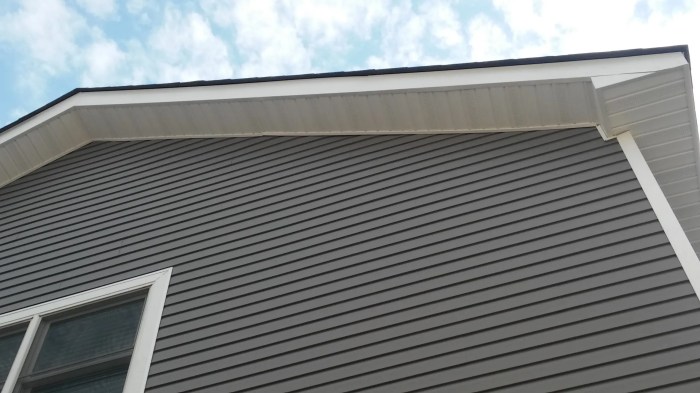Siding Contractors Near Me: Your Guide to Quality Home Improvements
Embark on a journey to discover the world of siding contractors near me, where quality meets expertise in home improvement projects. As we delve into the realm of siding materials and local contractors, get ready to explore the key factors that make all the difference.
Importance of Siding Contractors
When it comes to home improvement projects, siding contractors play a crucial role in ensuring the exterior of your home is not only visually appealing but also well-protected. Their expertise and skills are essential in achieving a high-quality finish that can enhance the overall look and value of your property.
Professional Workmanship
One of the main reasons why hiring professional siding contractors is essential is the level of workmanship they bring to the table. With their experience and training, they can deliver precise and detailed work that meets industry standards and exceeds your expectations.
Quality Materials and Installation
Experienced siding contractors have access to high-quality materials and know the best installation techniques to ensure durability and longevity. By working with professionals, you can be confident that your siding will withstand the elements and remain in top condition for years to come.
Time and Cost Efficiency
By hiring siding contractors, you can save time and money in the long run. Professionals can complete the project efficiently and effectively, reducing the risk of costly mistakes or delays. Additionally, their expertise can help you avoid unnecessary expenses by getting the job done right the first time.
Types of Siding Materials
When it comes to siding materials, there are several options available, each with its own set of advantages and disadvantages. Let's compare and contrast some of the most commonly used siding materials in construction.
Vinyl Siding
- Pros:
- Cost-effective
- Low maintenance
- Wide range of colors and styles
- Cons:
- Can crack or fade over time
- Not as environmentally friendly as other options
Wood Siding
- Pros:
- Natural and aesthetic appeal
- Easily customizable
- Environmentally friendly
- Cons:
- Requires regular maintenance and refinishing
- Prone to rot, insects, and moisture damage
Fiber Cement Siding
- Pros:
- Durable and long-lasting
- Resistant to fire, insects, and rot
- Low maintenance
- Cons:
- Higher initial cost compared to vinyl or wood
- Heavy and requires professional installation
Stucco Siding
- Pros:
- Durable and long-lasting
- Low maintenance
- Excellent insulating properties
- Cons:
- Requires professional installation
- Can crack or chip over time
Finding Local Siding Contractors
When looking for siding contractors in your area, it is essential to follow a strategic approach to ensure you hire a reputable and qualified professional. Here are some steps to help you locate the best siding contractor near you:
Design a Strategy for Locating Reputable Siding Contractors
- Start by asking for recommendations from friends, family, or neighbors who have recently had siding work done. They can provide valuable insights and referrals to reliable contractors.
- Research online directories and websites that list local siding contractors. Look for companies with positive reviews and high ratings from previous clients.
- Contact local home improvement stores or building supply companies for recommendations on reputable siding contractors they have worked with in the past.
- Check with your local Better Business Bureau (BBB) to see if any complaints have been filed against the contractors you are considering.
Organize Steps to Verify the Credibility and Qualifications of Local Siding Contractors
- Ask for proof of licensing and insurance from the siding contractors you are considering. This ensures they are qualified to perform the work and protects you in case of any accidents or damages.
- Verify the contractor's experience by asking for examples of past projects and references from previous clients. A reputable contractor will be happy to provide this information.
- Check if the contractor is a member of any professional associations or trade organizations related to the siding industry. This can indicate their commitment to quality and professionalism.
Create a Checklist for Evaluating Reviews and Recommendations When Selecting a Siding Contractor
- Read online reviews and testimonials from previous clients to get an idea of the contractor's reputation and quality of work.
- Look for specific feedback on the contractor's communication, timeliness, cleanliness, and overall professionalism.
- Ask for recommendations from the contractor and contact these references to inquire about their experience working with the contractor.
- Consider the contractor's response to negative reviews and how they handle complaints or issues raised by clients.
Cost Factors and Budgeting
When it comes to hiring siding contractors for a project, there are several key cost factors that need to be considered. It's important to have a clear understanding of these factors in order to effectively budget for your siding installation.
Here, we will discuss strategies for budgeting and cost estimation, as well as how to balance quality work with budget constraints when choosing siding contractors.
Key Cost Factors
- The size of the project: The larger the area that needs to be covered with siding, the higher the cost will be. Contractors typically charge per square foot, so the size of your project will directly impact the overall cost.
- Choice of siding material: Different siding materials come at different price points. Vinyl siding is generally more affordable compared to options like wood or fiber cement. Your choice of material will significantly influence the total cost of the project.
- Complexity of the project: If your project involves intricate designs, multiple levels, or unique architectural features, the complexity of the project can increase the cost. Contractors may charge higher prices for projects that require more skill and expertise.
Budgeting Strategies
- Get multiple quotes: It's always a good idea to get quotes from several siding contractors to compare prices. This will help you get an idea of the average cost for your project and choose a contractor that fits within your budget.
- Plan for unexpected costs: It's important to have a contingency fund set aside for any unexpected expenses that may arise during the project. Planning for unforeseen costs can help you stay within your budget.
- Consider long-term savings: While it may be tempting to opt for the cheapest option, investing in higher-quality materials and workmanship can save you money in the long run. Cheaper materials may require more frequent repairs and replacements, leading to higher costs over time.
Balancing Quality and Budget
- Research contractors: Look for siding contractors with a good reputation and positive reviews. While it's important to stay within your budget, it's equally important to ensure that the contractor you choose delivers quality work. A balance between cost and quality is essential for a successful siding installation.
- Communicate your budget: Be upfront with contractors about your budget limitations. A reputable contractor will work with you to find cost-effective solutions without compromising on quality. Open communication is key to achieving a balance between your budget and the quality of work.
Siding Installation Process
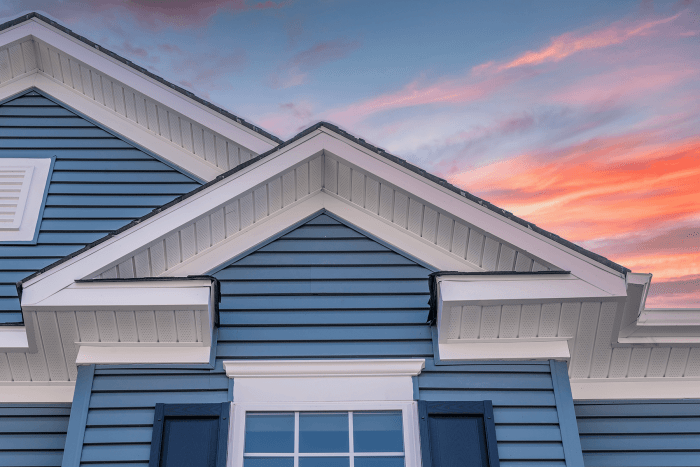
When it comes to siding installation, there are several important steps that contractors follow to ensure a successful project. Proper preparation is key to a smooth installation process, and being aware of common challenges can help in addressing them effectively.
Typical Steps in Siding Installation
- 1. Inspection and preparation of the exterior walls: Before starting the installation, contractors inspect the walls to identify any damage or areas that need repair. They also clean the surface to ensure proper adhesion of the siding.
- 2. Measurement and cutting: Accurate measurements are taken to ensure the siding panels fit perfectly. The panels are then cut to the appropriate size.
- 3. Installation of the siding: The siding panels are installed starting from the bottom and working their way up. Proper techniques are used to secure the panels in place.
- 4. Sealing and finishing: Once the siding is installed, sealants are applied to prevent moisture infiltration. Any necessary finishing touches are also added.
Importance of Proper Preparation
Proper preparation before beginning the installation is crucial as it ensures that the siding is installed correctly and will last for a long time. It helps in identifying any underlying issues that need to be addressed, such as rot or mold, and ensures a smooth and efficient installation process.
Common Challenges and How to Address Them
- 1. Uneven walls: Uneven walls can make it challenging to install siding properly. Contractors may need to use shims or other techniques to even out the surface before installing the siding.
- 2. Moisture issues: Moisture infiltration can cause damage to the siding and the underlying structure. Proper sealing and waterproofing techniques can help prevent moisture-related problems.
- 3. Incorrect installation: Incorrect installation can lead to issues such as warping or buckling of the siding. It's essential to hire experienced professionals who follow proper installation techniques.
Last Word
From the importance of professional siding contractors to the intricacies of cost factors and installation processes, this guide has unveiled the essentials for your next home upgrade. Make informed decisions and transform your living spaces with the right siding contractors near you.
FAQ Section
How do I verify the credibility of local siding contractors?
To verify credibility, check for licenses, insurance, and certifications. You can also ask for references and look up online reviews.
What are the common challenges faced during siding installations?
Common challenges include weather delays, structural issues, and ensuring proper insulation. Addressing these promptly is crucial for a successful installation.
Is it possible to balance quality work with budget constraints when choosing siding contractors?
Yes, by getting multiple quotes, discussing options with contractors, and prioritizing essential aspects, you can achieve a balance between quality and budget.
